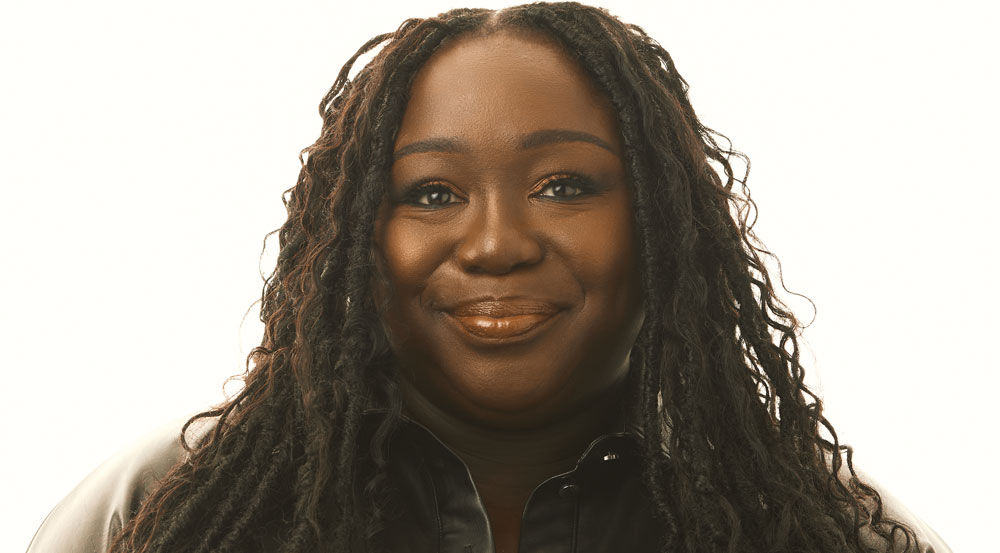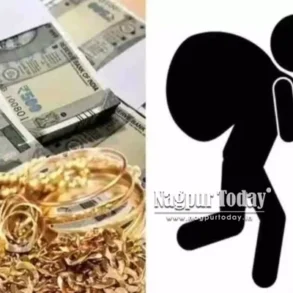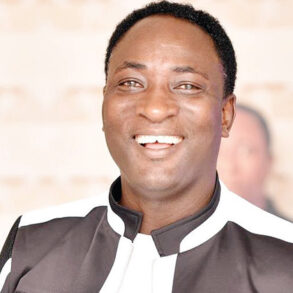
April 30 was a “great day” to be Jocelyn Bioh, playwright of the hit Broadway show “Jaja’s African Hair Braiding.”
Bioh was up to watch the Tony Awards nominations — “Me, my husband and my 10-month-old had a rare morning watching television,” she tells Variety over the phone hours later — but she wasn’t particularly anxious about what might or might not happen. “With all the rejection and all of the things I’ve experience in my life as an artist, I’m prepared for anything,” she explains. “I was like, ‘I stand by the beautiful work that we did on the play, and if that gets recognized, wonderful. and if that doesn’t, it doesn’t diminish what work the play did and how much it impacted people.”
The play is set in a Harlem hair braiding shop run by a group of West African immigrant women and takes place over the course of one sweltering summer day as the braiders and their clients unpack their lives — discussing the latest gossip, their romantic exploits and education woes, much of it made more difficult by the lack of immigration papers.
Popular on Variety
In 2019, Bioh, who is Ghanian-American, was inspired by her regular 10-hour sits in the chairs of hair braiders and the tensions caused by the Trump administration’s policies about immigration to write a first draft of a play that would get to the heart of this all-too relatable conversation. The play, produced by LaChanze and Taraji P Henson, premiered on Broadway to rave reviews, strong ticket sales and two extensions in its run, which ended in November after 56 performances.
Fast forward to April and the “glorious” moment when “Jaja’s African Hair Braiding” was nominated, not only for best play, but four other Tony awards. “I screamed and then immediately burst into tears,” Bioh recalls.
The emotion was, in part, because there was history at stake. The first Black playwright to win the Tony for best play was Joseph A. Walker for “The River Niger” in 1974. August Wilson followed in 1987 for “Fences,” and there has not been a Black playwright to win the prize since. In fact, Bioh is the first Black playwright since 1991 to have their play make its world premiere on Broadway. And could become the first Black woman playwright to win that Tony, too.
“I feel kind of stunned. Then, in other moments, I feel so honored,” Bioh says as the news continues to sink in. “I’ve been watching the Tony Awards since I was a little kid; once I really understood what these people did as a career and I started watching the nomination, I was in. I’ve been watching them every single year for like 20 years. Each year, I started to know one person or two people and eventually it started to be a season celebrating my colleagues and my friends. So, to have this moment for myself, ‘surreal’ is the best word.”
The entire experience of making “Jaja’s African Hair Braiding” has had a pseudo-surreal quality, bursting with full-circle moments that shine a light on Bioh’s journey from theatre lover to actor to history-making playwright. Here she shares some of her journey and what’s to come.
Think back to October 3, 2023, opening night of “Jaja’s African Hair Braiding” — 10 years since you made your Broadway debut as an actor — what do you remember about making your debut as a playwright?
JOCELYN BIOH: It was wild because there’s two Broadway theaters on that side of 47th Street: my acting debut was in one and then down the block was my playwriting debut. It was a wild and in an interesting way full circle moment. I’m a born and bred New Yorker, I grew up in this city. I could not afford to see a lot of Broadway shows when I was younger, so it was a cool moment. I felt all the emotions just seeing my family’s name, the Bioh, name on a Broadway marquee. I don’t think that that’s something my parents ever would have imagined when they first came here to this country.
What was it like looking up to see not just the full circle of your career, but the full circle of your family’s experience?
BIOH: It shows what persistence and consistency can get you. This is one of those jobs where people think you tripped and stumbled into some sort of success, but people have no idea how long you’ve been grinding. Every audition, every no you’ve heard, every time someone passed on your script, it hardens you. You have to push through every time you face rejection.
It’s a marvelous moment when you’ve been walking through the mud for so long, then you get to a moment where you’re like, “Oh my gosh, I’m making my Broadway debut. It’s only then, when you kind of look up and look back at everything you’ve been through, it puts it all into perspective. I felt reflective that night, and then afterwards I was celebratory.
Let’s talk about the nomination. What do you remember thinking in that moment? What was behind all the emotions?
BIOH: Just the years and years and years of hard work and grinding. I’m not somebody who comes from wealth and access. It doesn’t feel that long ago that I was standing in Times Square, handing out flyers to people promoting other people’s Broadway shows. So, to now be sitting in my living room with my husband and my kid and watching Tony nominations come in for a play that I wrote, you take a moment to take stock of that. Those two women — those two versions of me – are not that far apart. You take stock of the moment and just are grateful to God for getting you through a moment that felt so incredibly far from any version of reality.
What was it like to see “Jaja’s African Hair Braiding” earn five nominations?
BIOH: Oh gosh. It’s amazing because it speaks to how many people are involved in creating a play. Yes, I wrote the words, but we need somebody who can bring the set to life [scenic designer David Zinn and sound designers Justin Ellington and Stefania Bulbarella]. We need someone who can make beautiful costumes that bring the characters to life [costume designer Dede Ayite]. And we need somebody to put it all together — the play didn’t direct itself. Whitney White’s stunning vision and an expert eye in putting what seemingly feels like an easy play, but is deceptively difficult, on stage. It was just great to be able to share that moment. I would not be as happy about my nomination, if Whitney hadn’t been nominated as well.
How does the possibility that you could be the first Black woman playwright to win the Tony land with you?
BIOH: It would be an incredible, amazing and bittersweet victory – as almost all our wins are. But it feels important. Recognition is so important for what we do. We’ve given so much to the American theatre and being able to be recognized in that way feels monumental. Historic. All those big, big words. It just feels like it’s bigger than me.
It’s for every single Black woman who has put pen to paper, or finger to keyboard, to create a masterpiece. And there have been so many. Ntozake Shange, Katori Hall, Dominique Morisseau, Danai Gurira, Lorraine Hansberry. These are incredible playwrights who have not received this kind of recognition, so it would be the biggest honor of my life.
You are one of 70 first-time nominees, what does that say about the state of the industry?
BIOH: It speaks to the landscape of what Broadway can be, that it can be this beautiful, diverse tapestry of new voices. That’s 70 new opportunities to have people to share their artistry on the biggest stages in the world. I hope that that is like a glimpse into our future. I hope that becomes the norm — every year that number gets bigger.
Aside from your “Jaja’s” crew, who were you particularly excited to see nominated?
BIOH: Branden Jacobs-Jenkins [nominated for best revival of a play for “Appropriate”]. He and I started out together. My first professional role as an actor was in his first play, “Neighbors” at the Public Theater 14 years ago and we have been coming up in the game together all of that time, side by side. To be able to share in this moment, that we both are getting our first Tony nomination in the same year is the sweetest, sweetest, sweetest cherry on the best cake.
Gayle Rankin [best actress in a leading role in a musical for “Cabaret at the Kit Kat Club”] is one of my dear friends. She’s so stunning in “Cabaret” and taking ownership of such an iconic role. And my girl Amber Iman [best actress in a featured role in a musical for “Lempicka”], my co-founder of Black women on Broadway. Its special to be nominated, but even more so to be nominated alongside your peers.
How special to be able to share the experience with so many of your friends and your family, and that little 10-month-old who you’ll tell this story to one day.
BIOH: He was deeply uninterested. It really kept me humble. He was just looking at me like “Why are you not getting my milk?” and I understand, so I celebrated at the moment and then took the marching orders to go get him his bottle.
Who was the person that left you most in awe that they came to see the show?
BIOH: Michaela Coel — I’m just such a huge fan; she’s also a first-generation Ghanian artist, actress and writer, so her seeing my play meant everything to me.
I went to a student matinee — which are actually really informative because one thing about teenagers they are honest — these kids were in it from minute one, as soon as the lights went down, they were in it. That was really cool because, when I was a teenager, I would have loved to have seen something like this. It felt really cool to be part of someone’s first Broadway shows.
Talking about representation, you’ve shouted out Brandy as early blueprint for young Black girls with braids. As we’ve seen the evolution from Brandy to Halle Bailey as Ariel with locs, and other Black women with protective styles in media, what does it mean to have a play that is now part of that pop culture lexicon?
BIOH: I feel an incredible responsibility as an artist, as a Black woman, as a first-generation Ghanaian, as someone who actively wants to pour into stories about the diaspora.
People saw the title and they came to see the show because they knew the setting, it was something they were familiar with, but maybe they hadn’t thought about the kind of labor that goes into getting their hair braided. I had a friend who came to see the show and was like, “I’ve been getting my hair braided my whole life, and at my big age, I never thought my hair braiding ladies hands.” It’s a subtle moment that I mentioned it in the play, but it’s something that lands with people.
Anytime we’re writing stories that are about us, specifically Black women who I center in all of my work, it’s important work and it’s a responsibility that I don’t take lightly because we don’t have enough representation out there.
The show was made accessible to audiences via livestream and is going on a three-city tour in the fall. What is it like to know that more people will get to see Jaja’s?
BIOH: The tour is going to be the actual Broadway production, so I’m really thrilled for audiences across the country to be able to experience the show in person. The live stream was a sampler for what I hope will be more of a life for a lot of shows, both on and off Broadway. There were people watching in various parts of Africa, in Australia, from countries all over the world stream that show and that is thrilling to make theater accessible.
Technology is important for the future of this beautiful art form. Not everybody will be able to experience something in person, so being able to catch a show that was everyone’s talking about this exciting show, but you don’t live in New York, you can buy a ticket and watch it from the comfort of your own home. It’s thrilling that we were able to do that for that final week of performances. That’s how my mother, who lives in Ghana, was able to see the show.
The play is also going to be available for licensing, so there’s different theaters all over the country and the world, who will be able to do their own productions. I want everybody to come to the shop.
What was your mother’s review?
BIOH: It’s so interesting because like my parents are just not arty people. That’s probably a gross generalization for probably every first-gen kid, that their parents aren’t arty. [My parents] love music, they love jazz, they love certain art pieces and stuff, but theater is something they never quite latched on to. But because of the nature of my work and who most of my characters in my plays center, my family is particularly supportive. So, her review was simple: ‘It was really good and funny.’ And I’ll take it.
Do you now get free braiding all over the country?
BIOH: I wish. The last time I got my hair braided I was there for nearly 10 hours. It was good, because we talked a lot about the play — what it meant and how fun the experience was from my perspective and their perspective. It was cool to be getting my hair braided and talking about my play about hair braiding.
Correction: An earlier version of this article and its headline incorrectly stated that Jocelyn Bioh is the first Black female playwright to be nominated for a Tony Award, but she would become the first Black woman to win the category.
This post was originally published on this site be sure to check out more of their content.







